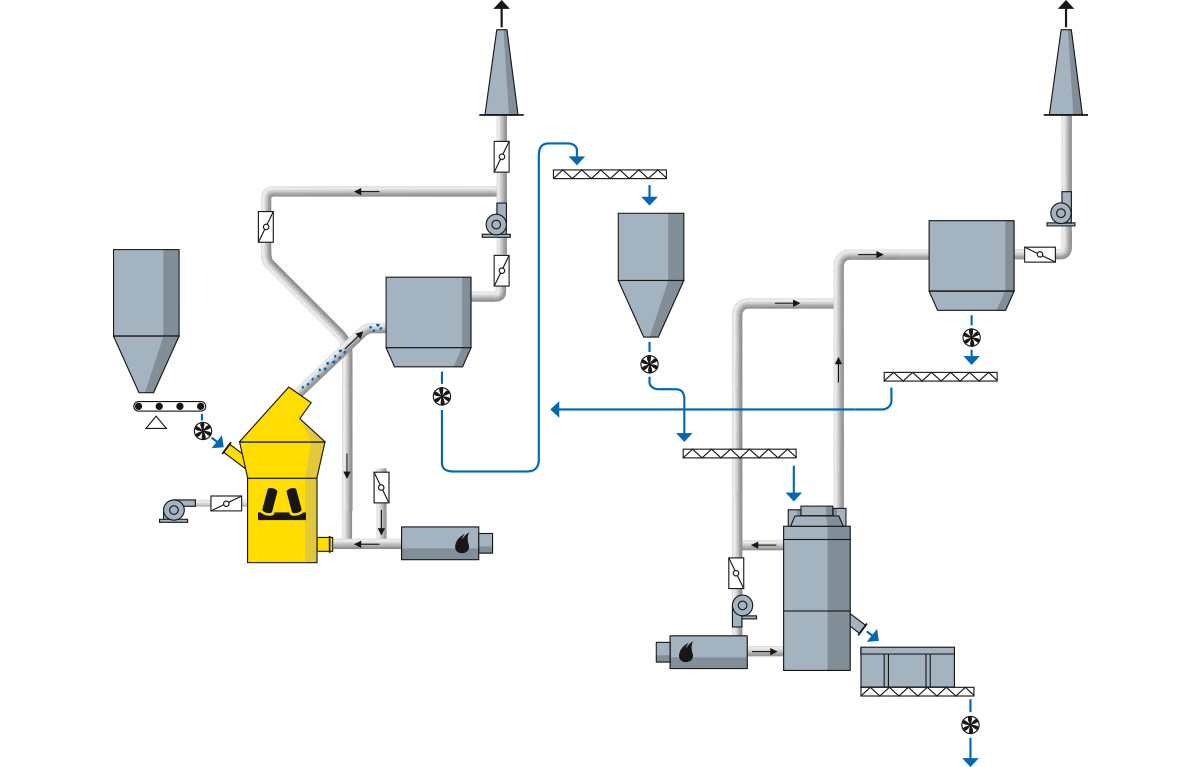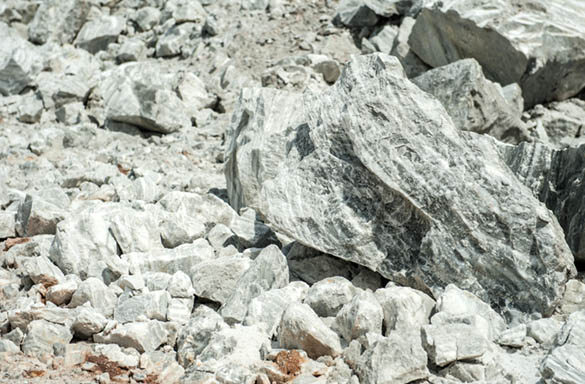Optimum process technology for each plaster product
Our process know-how covers the entire plaster product range. In fact our machines can produce plaster of Paris and wall plaster as well as high-quality technical plaster and special plaster for the production of plasterboard products and gypsum blocks. We can supply individual machines to accomplish special tasks, but also complete gypsum works where grinding, drying, classifying, and calcining can be performed in one or several steps depending on the requirements. The gypsum preparation process that you need is perfectly planned by our engineers considering quality of raw gypsum and quality of finished product alike.
Details on raw material
Natural gypsum rock is the most important material in plaster production. Depositions in primordial marine regions dehydrated, eventually resulting in such rock. Depending on the related geological history of the various deposits, gypsum rock may have different purity degrees, colors, and structures. Another important raw material in the gypsum industry is the so-called FGD gypsum (from flue gas desulfurization plants) which makes up about half of the gypsum demand of the industrialized countries. Like natural gypsum, FGD gypsum is mainly used in the gypsum and cement industries for the production of building materials like wall plaster, plasterboard, or plaster floor.
One-stage calcining in the MPS mill

Coarse natural gypsum or mixtures of such gypsum with FGD gypsum are ground, dried, calcined, and classified in the Pfeiffer vertical roller mill. To be noted that up to 20% of recycling material may be added if required. Product fineness and product properties can be adjusted within wide limits (0.063 to 0.5 mm). The ground and calcined products with their relatively short setting times are mainly used for the production of plasterboard, plaster based construction elements, and as basic material in wall plaster.
Multiple-stage calcining

Coarse natural gypsum or mixtures of such gypsum with FGD gypsum are ground, dried, partially calcined, and classified in the Pfeiffer vertical roller mill. To be noted that up to 20% of recycling material may be added if required. Product fineness can be adjusted within wide limits (0.063 to 0.5 mm). The intermediate product is calcined in the downstream gypsum calcining kettle. The product properties can be varied. The ground and calcined products with their medium to long setting times are mainly used as basic material in wall plaster or as molding plaster in the ceramic industry and as special plaster. They can also be used for the production of plasterboard and plaster based construction elements.



